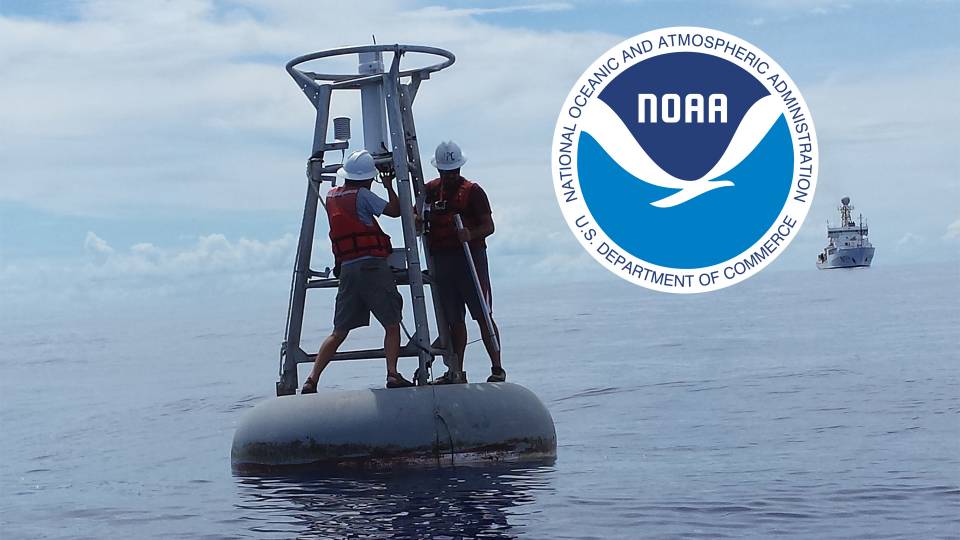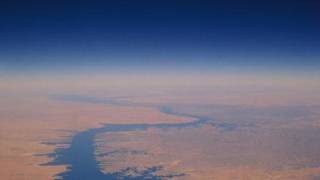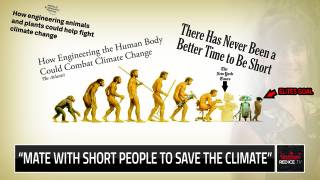Climate Change Industry: NOAA Cheated and Got Caught Faking Climate Data
They were duped – and so were we. That was the conclusion of last week’s damning revelation that world leaders signed the Paris Agreement on climate change under the sway of unverified and questionable data.
A landmark scientific paper –the one that caused a sensation by claiming there has been NO slowdown in global warming since 2000 – was critically flawed. And thanks to the bravery of a whistleblower, we now know that for a fact.
The response has been extraordinary, with The Mail on Sunday’s disclosures reverberating around the world. There have been nearly 150,000 Facebook ‘shares’ since last Sunday, an astonishing number for a technically detailed piece, and extensive coverage in media at home and abroad.
It has even triggered an inquiry by Congress. Lamar Smith, the Texas Republican who chairs the House of Representatives’ science committee, is renewing demands for documents about the controversial paper, which was produced by America’s National Oceanic and Atmospheric Administration (NOAA), the world’s leading source of climate data.
In his view, the whistleblower had shown that ‘NOAA cheated and got caught’. No wonder Smith and many others are concerned: the revelations go to the very heart of the climate change industry and the scientific claims we are told we can trust.
Remember, the 2015 Paris Agreement imposes gigantic burdens and its effects are felt on every household in the country. Emissions pledges made by David Cameron will cost British consumers a staggering £319 billion by 2030 – almost three times the annual budget for the NHS in England.
That is not the end of it. Taxpayers also face an additional hefty contribution to an annual £80 billion in ‘climate aid’ from advanced countries to the developing world. That is on top of our already gargantuan aid budget. Green levies and taxes already cost the average household more than £150 a year.
The contentious paper at the heart of this furore – with the less than accessible title of Possible Artifacts Of Data Biases In The Recent Global Surface Warming Hiatus – was published just six months before the Paris conference by the influential journal Science.
It made a sensational claim: that contrary to what scientists have been saying for years, there was no ‘pause’ or ‘slowdown’ in global warming in the early 21st Century.
Indeed, this ‘Pausebuster’ paper as it has become known, claimed the rate of warming was even higher than before, making ‘urgent action’ imperative.
There can be no doubting the impact of this document. It sat prominently in the scientific briefings handed out to international negotiators, including EU and UK diplomats.
An official report from the European Science Advisory Council stated that the paper had ‘refined the corrections in temperature records’ and shown the warming rate after 2000 was higher than for 1950-99.
So, flawed as it was, the Pausebuster paper unquestionably helped persuade world leaders to sign an agreement that imposes massive emissions cuts on developed countries.
No wonder, then, that our revelations were met with fury by green propagandists. Some claimed the MoS had published ‘fake news’. One scientist accused me of becoming the ‘David Irving of climate change denial’ – a reference to the infamous Holocaust denier.
Yet perhaps more damaging is the claim from some in the green lobby that our disclosures are small beer. In fact, their importance cannot be overstated. They strike at the heart of climate science because they question the integrity of the global climate datasets on which pretty much everything else depends.
The whistleblower is a man called Dr John Bates, who until last year was one of two NOAA ‘principal scientists’ working on climate issues. And as he explained to the MoS, one key concern is the reliability of new data on sea temperatures issued in 2015 at the same time as the Pausebuster paper.
It turns out that when NOAA compiled what is known as the ‘version 4’ dataset, it took reliable readings from buoys but then ‘adjusted’ them upwards – using readings from seawater intakes on ships that act as weather stations.
They did this even though readings from the ships have long been known to be too hot.
No one, to be clear, has ‘tampered’ with the figures. But according to Bates, the way those figures were chosen exaggerated global warming.
And without this new dataset there would have been no Pausebuster paper. If, as previous sea water evidence has shown, there really has been a pause in global warming, then it calls into question the received wisdom about its true scale.
Then there is the matter of timing. Documents obtained by this newspaper show that NOAA, ignoring protests by Dr Bates, held back publication of the version 4 sea dataset several months after it was ready – to intensify the impact of the Pausebuster paper. It also meant more sceptical voices had no chance to examine the figures.
Our revelations showed there was another problem with the Pausebuster paper – it used an untested experimental version of the dataset recording temperatures on land, which had not been properly archived and made accessible to other scientists.
This was a fundamental breach of mandatory rules under NOAA’s Climate Data Records programme, which Bates had devised. Is it sharp practice? Certainly it carries the stench of ‘Climategate’ in 2009, when leaked emails showed scientists colluding to hide data and weaknesses in their arguments.
It is important to acknowledge the MoS did make one error: the caption on a graph, showing the difference between NOAA’s sea data records and the UK Met Office’s, did not make clear that they used different baselines. We corrected this immediately on our website.
The only ‘fake news’ in our revelations is the claim that they don’t matter.
In truth, they are hugely damaging, for they suggest an agreement made by figures such as Barack Obama and David Cameron rested in part on research that had not been published with integrity.
This is an age where many have come to question the role of experts. Restoring trust demands transparency.
In climate science, this means being open about the fact there are still critical uncertainties: not about the basic proposition that the world is warming, thanks in part to humans, but about the speed at which this is happening; and when it is likely, left unchecked, to become truly dangerous.
Al Gore famously said: ‘The science is settled.’ It is not.
We cannot allow such a vital issue for our future to be mired in half truths and deceptions.






















